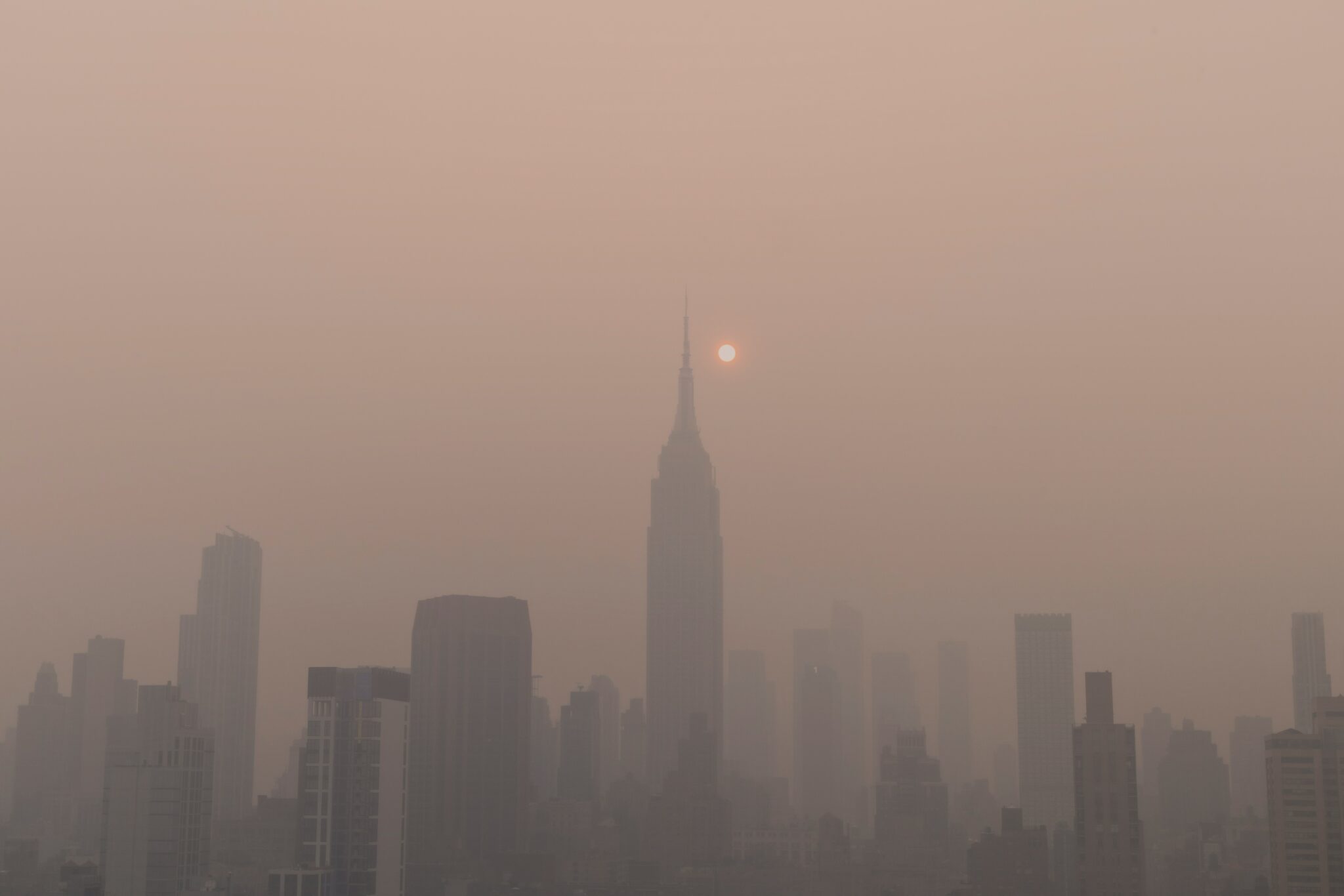Canadian Fire, Smoke in the US & Fungal Meningitis Outbreak in Mexico

Traveling can be an eye-opening and fulfilling experience, but it also comes with its fair share of potential health risks. As travelers, it’s essential to be well-informed about the risks we may face during our journeys and learn how to protect ourselves.
In this blog post, we’ll discuss two pressing health concerns:
- The impact of the wildfires raging across Canada and the subsequent smoke affecting the United States
- The recent outbreak of fungal meningitis linked to cosmetic procedures in Mexico.
Plus, we’ll share practical tips for a safe and healthy travel experience. So, whether you’re planning a road trip amidst hazy skies or considering medical tourism for a cosmetic procedure, we’ve got you covered.
Ready? Let’s begin!
Canadian Fire & Smoke in the US
Parts of Canada have been devastated by raging wildfires, and the resulting smoke has spread Southward, impacting major cities in the U.S. This has caused poor air quality and limited visibility, posing potential risks to those considering visiting the affected regions.
In fact, travelers may be exposed to poor air quality even if they’re far away from the affected regions. In this section, we’ll share key information so you can be prepared for potential smoke exposure, such as:
- Causes and effects of the wildfires
- Health impacts of smoke
- How to stay safe during your journey
Causes and Effects of the Canadian Fire
An increasing number of wildfires in Canada has led to a dangerous situation for both the residents and the environment. Moreover, the increasing frequency and severity of these fires can be attributed to a combination of climate change and human activities, including logging and other land management practices.
According to The New York Times, the smoke’s impact extends beyond the immediate vicinity. Instead, it travels vast distances, affecting areas such as New York City. At the beginning of this month, the city experienced hazy skies, and air quality was the lowest it had been in 14 years.
Health Impacts of Wildfire Smoke
The particles in the smoke can cause irritation to the eyes, nose, throat, and lungs, which:
- Makes you cough
- Makes your throat scratchy
- Irritates your sinuses
Inhaling smoke can also exacerbate chronic heart and lung disease and lead to more severe medical issues.
How to Stay Safe
The first step to staying safe during your trip is to be informed. Check the local news and air quality reports for your destination and any area you plan to pass through during your travel. Websites and smartphone apps, such as AirNow.gov or the Smoke Sense app, can provide real-time information on air quality and smoke levels.
When air quality is poor due to smoke, try to limit your time outdoors, particularly during times when the pollution is at its highest levels. We suggest you schedule indoor activities or explore areas with better air quality.
If you must be outdoors, refrain from exercising. Why? Exercise increases the rate at which you inhale pollutants, therefore, it can potentially aggravate the effects of the smoke. Besides, while outdoors, you should take breaks and seek shelter in air-conditioned environments to minimize exposure.
Fungal Meningitis Outbreak in Mexico
This month, the WHO issued a warning regarding a fungal meningitis outbreak in Mexico, which left multiple severely debilitated patients and four fatal cases.
The outbreak has been linked to non-regulated cosmetic procedures performed at unauthorized clinics. These procedures involved the injection of foreign substances into the face or other body parts. However, this hypothesis is still under investigation.
What is Fungal Meningitis
You may be wondering: What is fungal meningitis? It’s a rare form of meningitis called fungus meningitis that affects the meninges, which are the protective membranes that surround the brain and spinal cord. This disease can be life-threatening if not treated promptly.
Fungal meningitis symptoms include:
- Headaches
- Fever
- Nausea
- Vomiting
- Sensitivity to light
In general, fungal meningitis isn’t contagious. It is typically contracted through direct exposure to fungal spores present in the environment.
Warnings and Advice to Travelers on Medical Tourism from the World Health Organization
If you’re traveling to Mexico to perform a cosmetic procedure (i.e. medical tourism), you may want to minimize the risk of contracting fungal meningitis or other infections during your trip..
Here’s what the WHO recommends:
- Before undergoing any treatment, it is essential to thoroughly research the clinics and their medical professionals to ensure they adhere to proper safety and hygiene standards.
- Seek guidance from your primary healthcare provider when considering medical procedures abroad.
- Follow post-operative care instructions
Key Takeaways
As we’ve explored in this post, staying informed and prepared before your trip is key. It ensures a safe and enjoyable travel experience amidst health risks like wildfire smoke and fungal meningitis outbreaks. After all, who wants to miss vacation days because of getting sick?
COVID may seem like a thing of the past, yet there are still many cases going on around the world. And in fact, some nations still require COVID tests to enter the country.
Need a COVID test before you go on your next adventure? Discover testing locations near you with our international directory.



